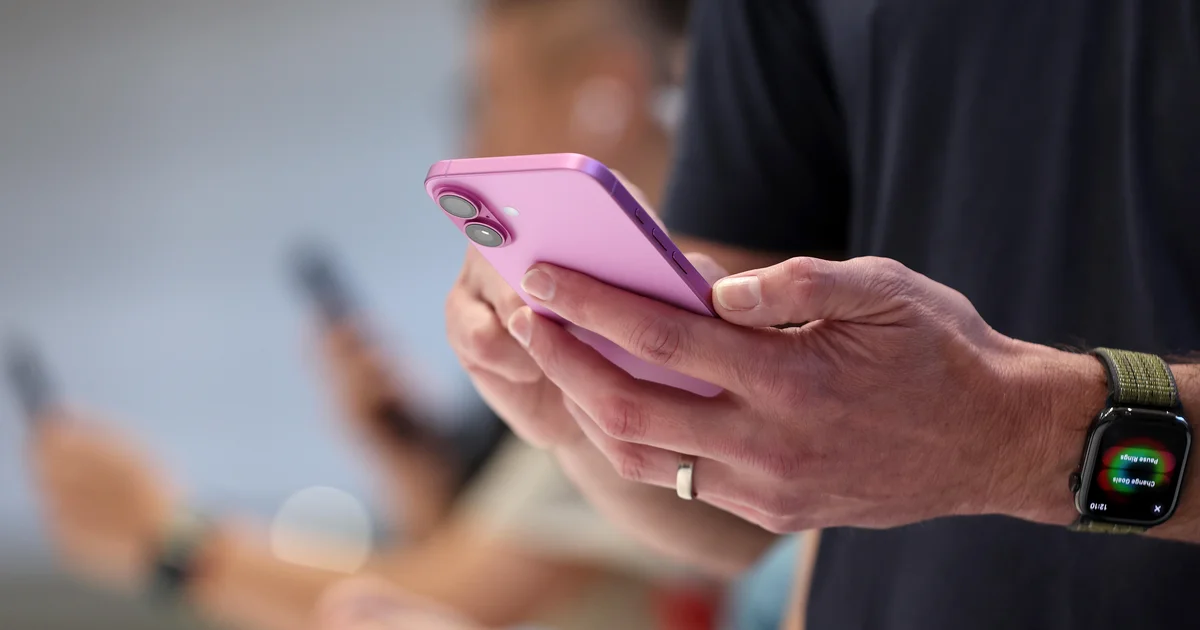Apple iPhones could become even pricier under President Trump’s reciprocal tariffs on roughly 90 foreign nations, which are slated to take effect Wednesday.
In a move that threatens to raise costs on all electronics, including iPhones, the White House on Tuesday said it would follow through on a threat to enact a 104% tariff on all Chinese goods imported into the U.S. The levy will take effect Wednesday at 12:01 a.m. EST, White House press secretary Karoline Leavitt said in a press briefing Monday.
The price for the popular tech tool, which starts at $599 for the most basic model, the iPhone 16e, is poised to increase by hundreds of dollars, depending on how Apple responds to the sweeping levies. The iPhone 16 Pro 128 GB, which features Apple Intelligence, costs $999.
The iPhone accounts for about half of Apple’s revenue. Most of its smartphones are manufactured in China.
Wedbush Securities tech analyst Dan Ives said in a research note Tuesday that the added levies could create a “category 5 price storm” for personal electronics and other gadgets. Taxing China and other nations at such rates is the equivalent of “flipping a boat upside down in the ocean with no life rafts,” he added.
How much more could an iPhone cost?
The iPhone 16 Pro Max 256 GB, which like most iPhones is assembled in China, retails for $1,199. Under the new tariffs on Chinese imports, the price of the device could rise $350, or 29%, lifting the price tag to $1,549, data from UBS Investment Research shows.
The cost of an iPhone 16 Pro 128 GB, which is made in India and costs $999, could increase to $1,119, an increase of 12%, the investment bank found.
An April 3 analysis from Rosenblatt Securities found that the Cupertino, California-based company could raise iPhone prices by 43% to offset the effects of reciprocal tariffs.
Apple didn’t respond to a request for comment on how the Trump tariffs could affect iPhone prices.
What if Apple moved production to the U.S.?
President Trump has said the new U.S. tariffs are aimed at spurring both domestic and foreign companies to build in the U.S. But for Apple and other companies, manufacturing their products in the U.S. entail significantly higher labor costs — costs that would largely be passed on to consumers.
If Apple were to begin assembling iPhones in the U.S, a Chinese-made device that previously sold for $1,000 would cost $3,500 if manufactured in New Jersey, Texas or some other state, Ives estimated.
“Saying we can just make this in the USA is a statement that incredibly understates the complexity of the Asia supply chain and the way electronics, chips, semi fabs, hardware, smartphones, etc. are made for U.S. consumers over the last 30 years,” he said in a report.
Many Americans concerned Trump’s reciprocal tariffs will raise prices 05:49
As a result, Ives is highly skeptical that tariffs alone will lead companies to shift their manufacturing plants from low-cost havens like China to the U.S., calling the idea “absurd.”
But some companies, including Apple, could attempt to rejigger supply chains to avoid the steepest tariffs. For example, Apple plans to manufacture more iPhones in India to reduce its reliance on China, the Wall Street Journal reported, citing people familiar with the matter.
Megan CerulloMegan Cerullo is a New York-based reporter for CBS MoneyWatch covering small business, workplace, health care, consumer spending and personal finance topics. She regularly appears on CBS News 24/7 to discuss her reporting.
